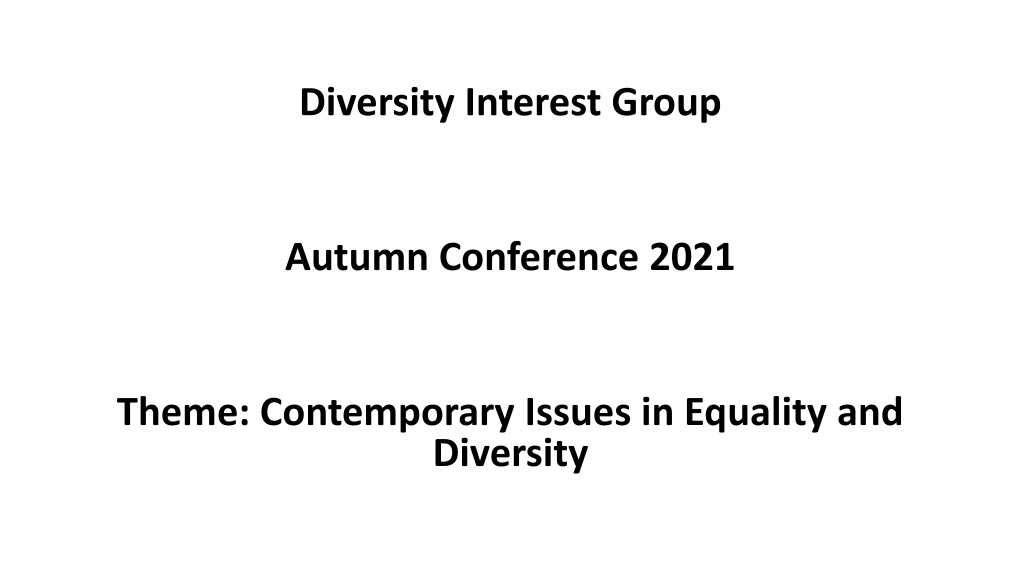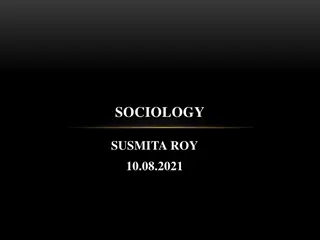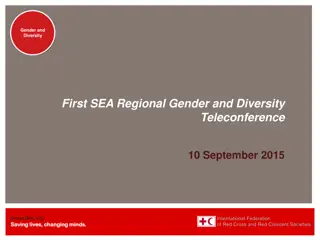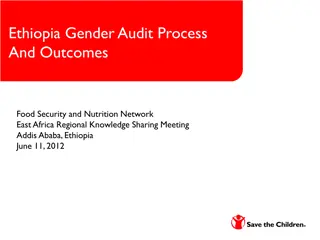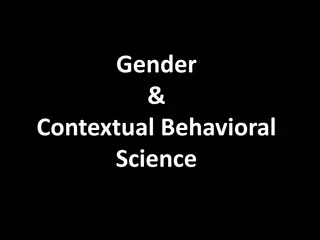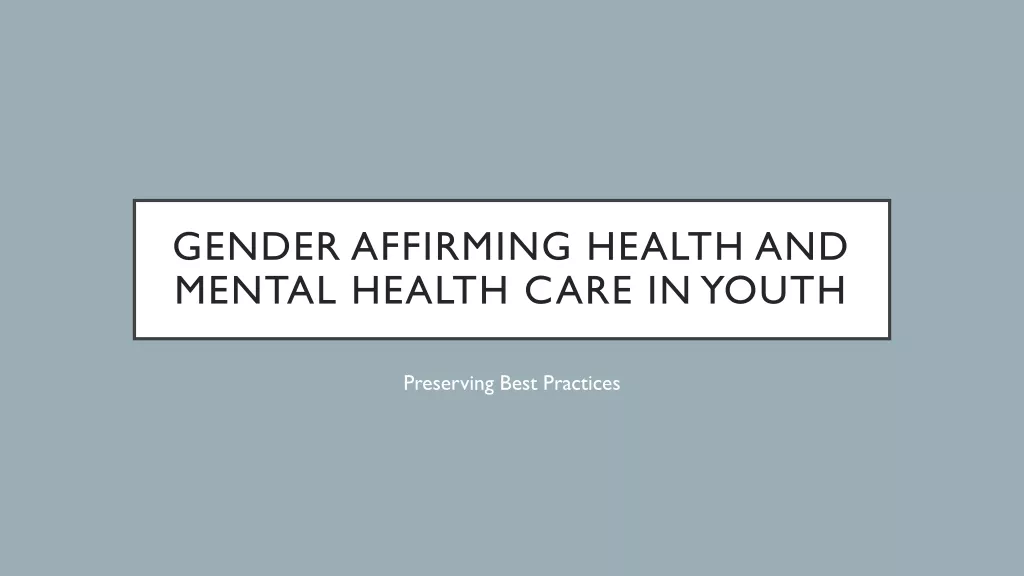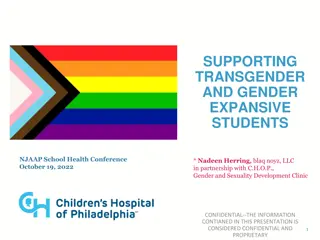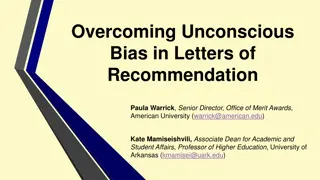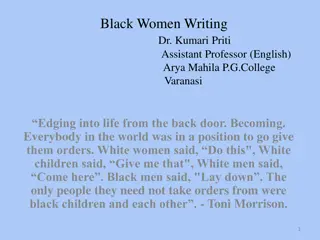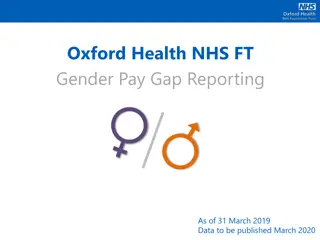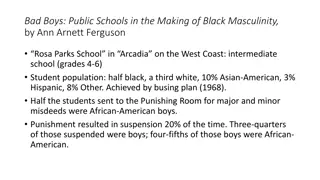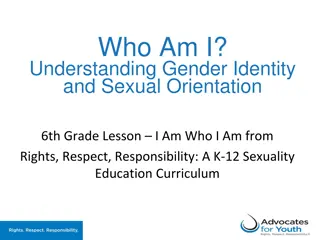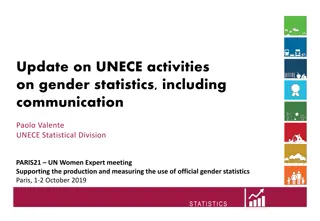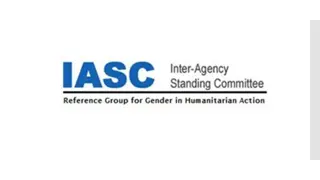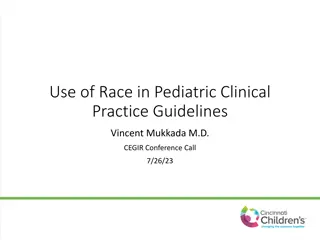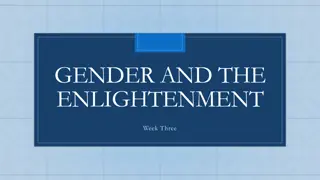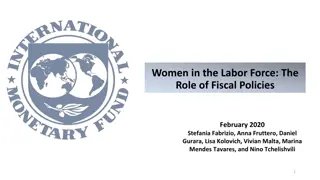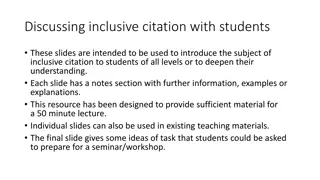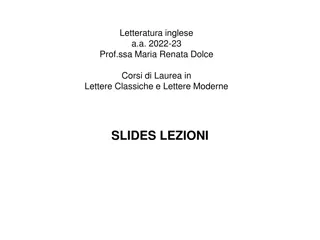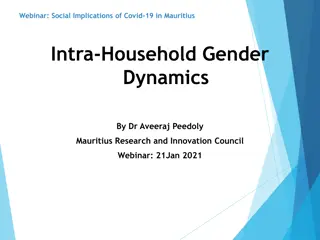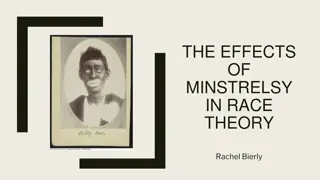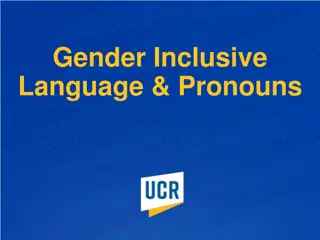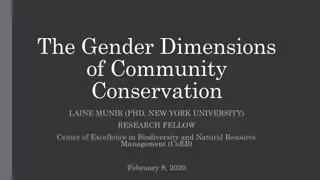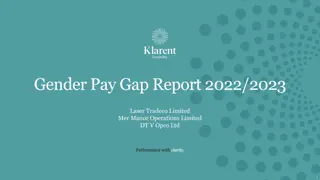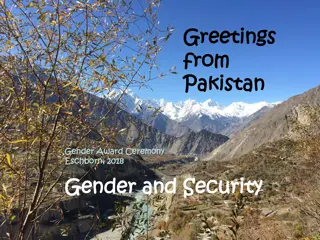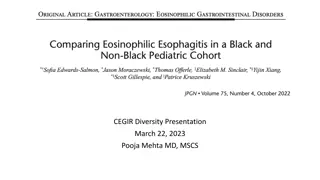Exploring Gender and Race Diversity Among Black Female Academia Post-COVID-19
The study aims to delve into gender and race issues affecting black female academia in British universities post-COVID-19, focusing on intersectionality, power dynamics, institutional processes, and structural systems. The research objectives seek to understand the impact of gender and race categorization on power relations, institutional considerations, and challenges faced by black female academics in academic settings.
Download Presentation

Please find below an Image/Link to download the presentation.
The content on the website is provided AS IS for your information and personal use only. It may not be sold, licensed, or shared on other websites without obtaining consent from the author. Download presentation by click this link. If you encounter any issues during the download, it is possible that the publisher has removed the file from their server.
E N D
Presentation Transcript
Diversity Interest Group Autumn Conference 2021 Theme: Contemporary Issues in Equality and Diversity
Exploring Gender and Race Diversity issues among Exploring Gender and Race Diversity issues among Black Female Academia in British Universities Post Black Female Academia in British Universities Post COVID COVID- -19. 19. Adejoke Ige-Olaobaju-1*, Patrice Seuwou-1, Michael Oyelere-2, Amarachi Amaugo-2 1. University of Northampton, HRM and Organisational Behaviour Faculty of Business and Law, Northampton NN1 5PH, UK. Ade.Ige-Olaobaju@northampton.ac.uk. 1. University of Northampton, Business Systems and Operation Faculty of Business and Law, Northampton NN1 5PH, UK. Patrice.Seuwou@northampton.ac.uk. 2. Coventry University, Human Resource Management Faculty of Business and Law. Coventry CV1 2PL Michael.oyelere@coventry.ac.uk. 3. De Montfort University, Human Resource Management and Organisational Behaviour, Faculty of Business and Law, Leicester LE1 9BH, UK. amarachi.amaugo@dmu.ac.uk
Introduction Introduction Theories on intersectionality are becoming increasingly prominent in recent academic literature that consider the effects of gender, race, ethnicity and other social characteristics on inequality and its outcomes(Steffensmeier, D. et al. 2017). Intersectionality has been referred to among scholars as a metaphor, concept, research paradigm and a way of thinking about identity and power (Crenshaw, 2015, Acker, 2011, Dhamoon, 2011, Knapp, 2005). From the feminist theorist perspective, intersectionality has become the predominant way of conceptualizing the relation between systems of oppression which construct our multiple identities and social locations in relations to hierarchies of power and privileges.
In 2016, Else-Quest & Hyde study summarised three assumptions that underlie the definition of intersectionality. -First assumption recognises that people are categorised simultaneously based their membership in multiple social groupings or categories (gender, ethnicity, religion, sexual orientation etc). on -Second assumption argues that entrenched within the socially constructed grouping and classification is a dynamic interconnected to power and power interrelations. -Third assumption argues that all social categories have both individual and contextual facets to them. This implies that social categories are intrinsically linked to personal identities, wider institutional processes, practices and structural systems.
Aim of the study and Research Objectives Aim of the study and Research Objectives The overarching aim of this study is to explore gender and race issues among black female academia Post COVID-19. The objectives are: To investigate how gender and race categorisation affect black female academia s dynamic interconnection and interrelation to power. To explore how the gender and race of black female academia is considered within the institutional process. To examine how the structural systems and practices within academic institutions create opportunities or challenges for black female academia.
Research Questions Research Questions How does gender and race categorisation affect black female academia s dynamic interconnection to power? How is the gender and race of black female academia considered within the institutional process? How does the structural systems and practices within academic institutions create opportunities or challenges for black female academia?
Literature Review: Intersectionality Theory Literature Review: Intersectionality Theory Intersectionality is a lens through which you can see where power comes and collides, where it locks and intersects. It is the acknowledgement that everyone has their own unique experiences of discrimination and privilege. This analytical framework was conceptualized and coined by Kimberl Williams Crenshaw in a paper in 1989. Therefore, intersectionality draws attention to individuals and groups multiple positionality at micro (individual) and macro (socio-structural) levels. The difference between seeing parallels and seeing intersections is that intersectionality makes clearer the arithmetic of the various forces the offsetting, ameliorating, intensifying, accumulating, or deepening impacts of power in individual lives and in societal structures (overlapping dynamics of differences).
Intersectionality graphic by Sylvia Duckworth. CC BY-NC-ND 2.0.
Research Methodology Research Methodology This qualitative research will focus on black female academia s perspectives and performance at some post-1992 universities in England. This exploratory study has proposed to undertake 30 semi-structured interviews. The study would investigate individual and collective experiences of black females in academia, their challenges and coping strategies. The interviews will focus on the experiences of black female academics (Black (African or Caribbean-Lecturer, Senior Lecturer, Assoc. Prof, Professors).
Anticipated findings from the study Anticipated findings from the study The expected contribution of the research would be to bring research- based evidence on experiences and challenges faced by black female academics with a focus on shared experiences and coping strategies. The study further provides theoretical and practical implications needed to enhance knowledge on race and gender issues with a focus on higher education institutions in the UK. The post pandemic effect on the experiences of black female academics in post-1992 universities.
References References Acker, J., 2011. Theorizing gender, race, and class in organizations. Handbook of gender, work and organization, 5(8), pp.65- 80. Crenshaw, K., 1989. Demarginalizing the intersection of race and sex: A black feminist critique of antidiscrimination doctrine, feminist theory and antiracist politics. u. Chi. Legal f., p.139. Crenshaw, K., 2015. Why intersectionality can t wait. The Washington Post, 24. Dhamoon, R.K., 2011. Considerations on mainstreaming intersectionality. Political Research Quarterly, 64(1), pp.230-243. Else-Quest, N.M. and Hyde, J.S., 2016. Intersectionality in quantitative psychological research: II. Methods and techniques. Psychology of Women Quarterly, 40(3), pp.319-336. Knapp, G.A., 2005. Race, class, gender: Reclaiming baggage in fast travelling theories. European Journal of Women's Studies, 12(3), pp.249-265. Steffensmeier, D., Painter-Davis, N. and Ulmer, J., 2017. Intersectionality of race, ethnicity, gender, and age on criminal punishment. Sociological perspectives, 60(4), pp.810-833.
